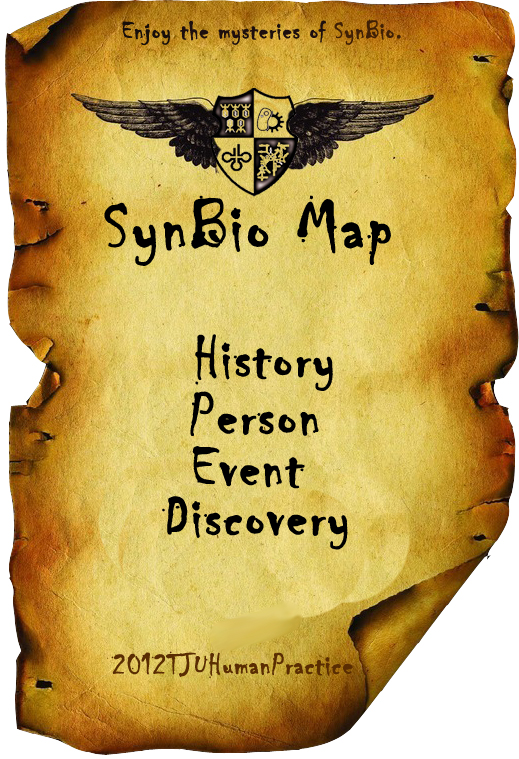Team:Tianjin/HumanPractice/Map
From 2012.igem.org
Revision as of 14:13, 26 September 2012 by Toushirou 1220 (Talk | contribs)

MAP
A novel discipline always needs effort to be spread out, a simple and clear way, of course, is necessary. Textbooks? Papers and Thesis? They may not be accepted by the busy public. A brief picture is much more effective and meaningful than a manual book. By collecting the great achievement and famous scientists in the Synthetic Biology map, it's simple enough for you to know the key point of SynBio from 1980s, when it was proposed, to now. Nothing can raise your desire but our Map. Who defined synthetic biology? What's its first achievement? What trouble did it caused? Come on and take a look at the moment that you have lost in Synthetic Biology.
Download at http://zhan.renren.com/tjuigem2012?from=rrhome
Reference
- Pearson, K. (1901). "On Lines and Planes of Closest Fit to Systems of Points in Space" (PDF). Philosophical Magazine 2 (6): 559–572.
- Abdi. H., & Williams, L.J. (2010). "Principal component analysis.". Wiley Interdisciplinary Reviews: Computational Statistics, 2: 433–459.
- Shaw P.J.A. (2003) Multivariate statistics for the Environmental Sciences, Hod-der-Arnold. ISBN 0-340-80763-6.[page needed]
- Saaty, Thomas L.; Peniwati, Kirti (2008). Group Decision Making: Drawing out and Rec-onciling Differences. Pittsburgh, Pennsylvania: RWS Publica-tions. ISBN 978-1-888603-08-8.
- Saaty, Thomas L. (2008-06). "Relative Measurement and its Generalization in Decision Making: Why Pairwise Comparisons are Central in Mathematics for the Measurement of Intangible Factors - The Analytic Hierarchy/Network Process". RACSAM (Review of the Royal spanish Academy of Sciences, Series A, Mathematics) 102 (2): 251–318. Retrieved 2008-12-22.
- Bhushan, Navneet; Kanwal Rai (January 2004). Strategic Decision Making: Applying the Analytic Hierarchy Process. London: Springer-Verlag. ISBN 1-85233-756-7.
- Forman, Ernest H.; Saul I. Gass (2001-07). "The analytical hierarchy process—an exposi-tion". Operations Research 49 (4): 469–487. doi:10.1287/opre.49.4.469.11231.
- http://www.fon.hum.uva.nl/praat/manual/Principal_component_analysis.html
 "
"




















